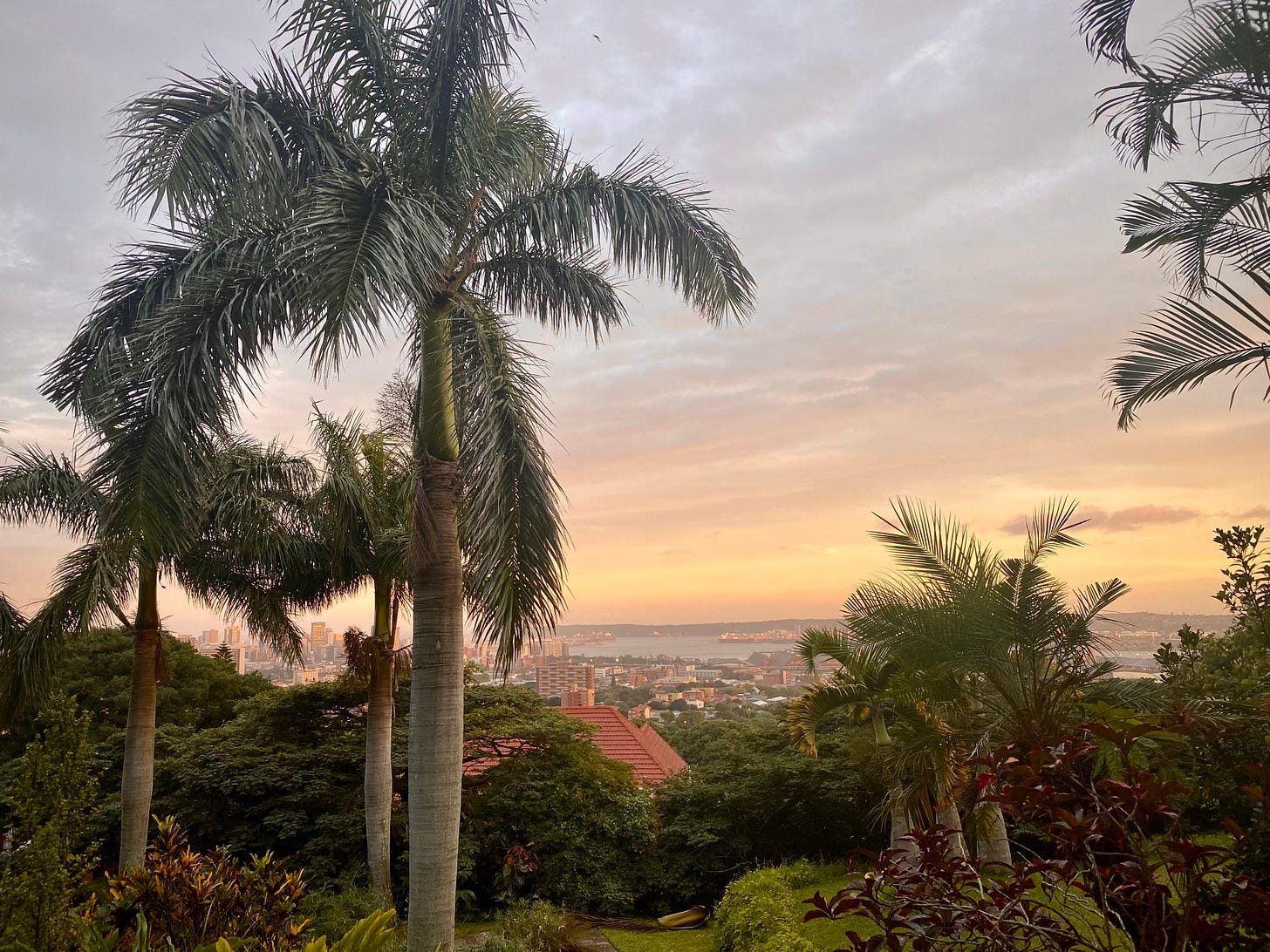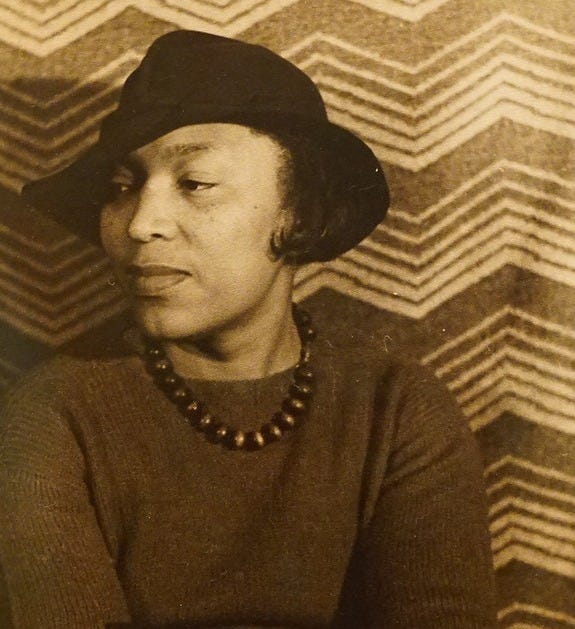A strawberry summer, monkeys, and what the stepmother saw
With Isabelle Dupuy, Julia Campbell-Gillies, and Dane Kuttler
Deep in lockdown 2020, with little to do and the hope of a return to normal life feeling impossible, I bought a bucket of soil and strawberry seeds from Tesco. It promised results in six weeks. I dreamt of popping out to the garden to harvest the fruits of my minimal labour, and of visitors — once they were allowed in again — complimenting the freshness, of saving some for my younger cousins to pick themselves, a strawberry patch in the middle of the city.
The dream didn’t last long. A couple of weeks later, the weather turned and a particularly determined gust of wind knocked the bucket over, scattering soil and newly sprouted seeds across the garden. I mourned the loss of my strawberry summer.
But a month on, as I sat on a towel on the grass reading a book, something caught my eye. A tiny green stalk bursting from the crack between paving slabs, proudly presenting an even tinier ruby of a fruit. It was the size of a fingernail and had already ripened to a deep, bright scarlet underneath the smattering of disproportionately large pips — it was a comically small strawberry, but a strawberry nonetheless.
I followed the crumb trail of more tiny stalks bearing tiny strawberries snaking along the path and into the flower patch, and filled a cereal bowl. We ate them and as we did so we laughed about the stubbornness of those seeds and about how strange that summer had been.
In today’s issue, the poet and florist Julia Campbell-Gillies talks about the ‘terminal hope’ of trying to grow plants, in the red dead soil, when she visits her parents in Durban.
Every summer since lockdown, a few tiny stalks reemerge and we laugh as we harvest; the bounty decreases as time takes us further from that year.
Sadia Nowshin
Junior Editor
Red soil
Poet and florist Julia Campbell-Gillies on trying to grow in Durban

Not infrequently, people haven’t even heard of Durban, in fact it’s something of a test of mine: ‘pleased to meet you. Have you heard of Durban?’
Weather like India. Food like India. Art deco buildings in ice cream colours, like Miami in the 1980s. Sprawling, golden beaches, Indian Ocean water, a bath full of sharks.
In Durban, the sky bears down on you. It is forever summer, hot in the day, pink every evening and swarming with birds. It’s terrifying and beautiful. It’s almost lawless. Crime draws lines around life that are solemnly navigated with a wry kind of resignation, loosely binding together an otherwise disparate population. Living in Durban is resolutely finding something tragic to laugh about with the person behind you in the supermarket queue.
I grew up in the central suburb of Glenwood, near the regional university of Kwa-Zulu Natal. Historically middle class, old family homes with gardens line wide boulevards, that curve round ancient trees, facing the natural harbour. ‘Discovered’ on Christmas Day by Vasco de Gama in 1497, it was colonially named Port Natal, along with the surrounding region — the Zulu Kingdom.
Glenwood used to be considered well-connected, and attracted affluent young professionals like my parents. But more recently, its proximity to the city centre and the main freeway out of town have given it a dangerous reputation, with most wealthier locals leaving the city suburbs and choosing the confines of a gated-estate community further North of Durban. The remaining stalwart residents rally around arts and academic institutions, optimistic for community. Nothing a 12-foot fence and near-mafia style private security can’t solve.
Julia Campbell-Gillies is a London-based model, poet, and florist. Her second anthology, Tempus Tenera, was published earlier this year
Julia is currently reading The Doll’s Alphabet by Camilla Grudova
King Herod in Florida
Isabelle Dupuy takes a trip to Eatonville

As usual on my visits to Miami, I was sitting on my parents’ balcony, drinking Bustelo coffee and eating Haitian patties while my family discussed ‘the situation’ in Haiti. The second inauguration of Donald Trump was imminent and we were apprehensive. Perhaps this is why I thought of Tell My Horse, Zora Neale Hurston’s account of her travels in Jamaica and Haiti in the 1930s. Unlike European commentators of her day who’d travel to Haiti seeking reasons to defend colonialism, Hurston’s portrait of the Black republic is compassionate and full of wonder. Yet in her book she mentions the seeds that have grown into the tangled roots that are strangling Haiti today.
Here was another American, a Black woman born in Alabama barely a generation from slavery who understood enough about politics and morality to see beyond the success of the Haitian Revolution.
The next day I decided to make a trip to the Zora Neale Hurston National Museum of Fine Arts in Eatonville, 250 miles away. I wanted to see Hurston’s Florida before the change in Washington.
US Road 27 cuts through the Panhandle, through the Everglades and sugar cane country towards Orlando. I stepped on the accelerator of my rental car. Miami with its turnpikes and exiles was behind me. I switched on the audiobook of Hurston’s last novel, The Life of Herod The Great.
‘Silence has many personalities. This profound absence of sound was filled with the hysteria of hope, …’
The humid air and flat, monotonous Florida landscape jarred with the fragrant hills of ancient Galilee. I relaxed into the drive, listening to Blair Underwood’s rich American voice.
Hurston’s best-known work is Their Eyes Were Watching God (1937) inspired by the legend of the Vodou goddess of love, Erzulee Freda. The author died in poverty in Fort Pierce, an hour’s drive from Eatonville in 1960, at the age of 69. The Life of Herod the Great was consigned to a pile of rubbish outside her cinder block house and the cleaning crew set it alight. The deputy sheriff of Fort Pierce, a friend of Hurston’s, saw the smoke and, with a garden hose, saved the manuscript.
Isabelle Dupuy is a writer and Writers Mosaic contributor. Her first novel is Living the Dream, and she is currently working on her second novel The Debt
Isabelle is reading
cinderella rashomon, a poem by Dane Kuttler
how the narrator tells it:
her name was cinderella.
note the casual cruelty in it,
the coal dust embedded in her cheeks.
the singed hems of everything she wore.
how the stepsisters tell it:
there's only one prince.
and when your mother marries up
ten rungs from her own birth,
three from yours, there's not much
higher you can go.
the threat of her disappointment
pinched.
how the stepmother tells it:
that bitch was never hungry,
I promise you. not under my roof.
how the father tells it:
It seemed like we didn't speak for years.
When I saw her folding my shirts, I told her
she didn't have to do that, and she looked up,
confused. I wouldn't have recognized her
on the street, her hair covered, her dress plain.
I told myself her eyes had never shined that much,
anyway.
how I tell it:
once upon a time,
everyone was hungry,
and none of them knew
for what.
— after ‘Lore’, by Nancy Huang; with thanks to Allison Bird Treacy
Dane Kuttler cooks up a storm and writes up a wall in rural Massachusetts, USA. More available at www.danepoetry.com





